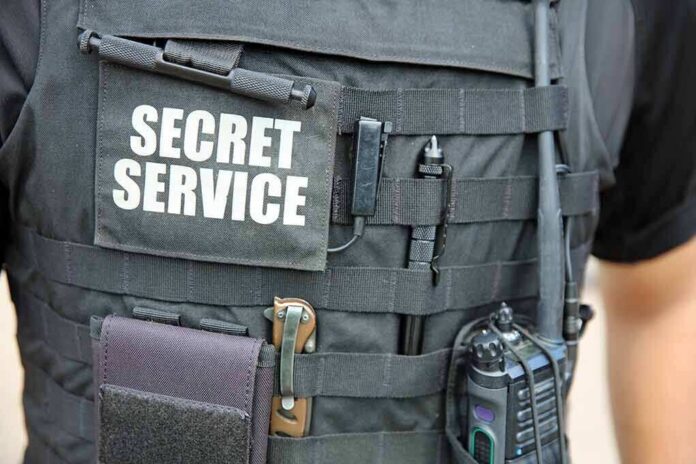
Recruitment and security vetting flaws within the U.S. Secret Service have raised alarms over national security safety.
Quick Takes
- The Secret Service allegedly ignored an insider threat and retaliated against a whistleblower.
- A previous applicant, who failed a terrorism polygraph portion, remains employed with significant clearance roles.
- Recent threats to Trump’s security have intensified scrutiny of the agency.
- Mandatory mental health evaluations, omitted, may have prevented internal agent conflicts.
Scrutiny on Recruitment Practices
The U.S. Secret Service is under fire for failing to address security vulnerabilities highlighted by an insider. Whistleblower claims revealed the hiring of an applicant who did not pass the terrorism section of a polygraph exam and now holds a position assessing security clearances. Allegations suggest that the agency overlooked these discrepancies following two attempts on President Donald Trump’s life in 2024.
The applicant reportedly exploited an unofficial “friends and family” loophole to retake the polygraph multiple times. Despite failing this critical component, the individual was appointed to evaluate others’ security clearances, undermining established protocols and potentially endangering sensitive national security interests.
🚨🚨EXCLUSIVE AND BREAKING: SECRET SERVICE ACCUSED OF FAILING TO RESPOND TO 'INSIDER-THREAT' COMPLAINTS
AGENCY HIRED APPLICANT WHO FAILED TERRORISM SECTION OF POLYGRAPH TEST AND NOW ALLOWS HIM TO EVALUATE OTHERS' SECURITY CLEARANCES, WHISTLEBLOWER ALLEGES
The Secret Service… pic.twitter.com/7MUh1ARn9U
— Susan Crabtree (@susancrabtree) March 31, 2025
Warnings Ignored from Within
The whistleblower responsible for unveiling these issues in the agency faced harsh repercussions, claiming his warnings triggered retaliation instead of action. The claim alleges, “Instead of investigating the individual for posing a potential threat, the agency turned on me,” further asserting this led to coerced resignation after more than two decades of service, highlighting the agency’s lack of responsiveness.
Other issues like excessive drinking incidents among agents, highlighted by episodes like Michelle Herczeg’s altercation, are not uncommon. Past behavior patterns only heighten the urgency for implementing mental health evaluations, a routine measure employed by other agencies like the FBI and CIA, but surprisingly absent in the Secret Service’s process.
Calls for Accountability and Reform
Following the revelations, Congress has been notified, yet the agency remains conspicuously unresponsive about investigating the claims. Prominent concerns indicate an urgent need for transparency and adjustments in recruitment policies. Without required mental health screenings and unchecked hiring practices, internal threats may continue to destabilize the agency’s integrity.
As the Secret Service battles perceptions of internal chaos, it’s evident that comprehensive reforms could prevent further risk to national security assets. Corrective steps could include launching internal investigations into the alleged practices and enacting formal processes to ensure strong mental health assessments, demonstrating a commitment to improving agency operations, and securing high-stakes responsibilities appropriately.
Sources:
- BREAKING: Secret Service Ignored “Insider Threat” Warning – Instead of Acting, They Did Something Far Worse
- Report: Secret Service Accused of Ignoring Insider Threat, Retaliating Against Whistleblower
- Secret Service Hired Applicant Who Failed Polygraph—Now He Reviews Clearances












